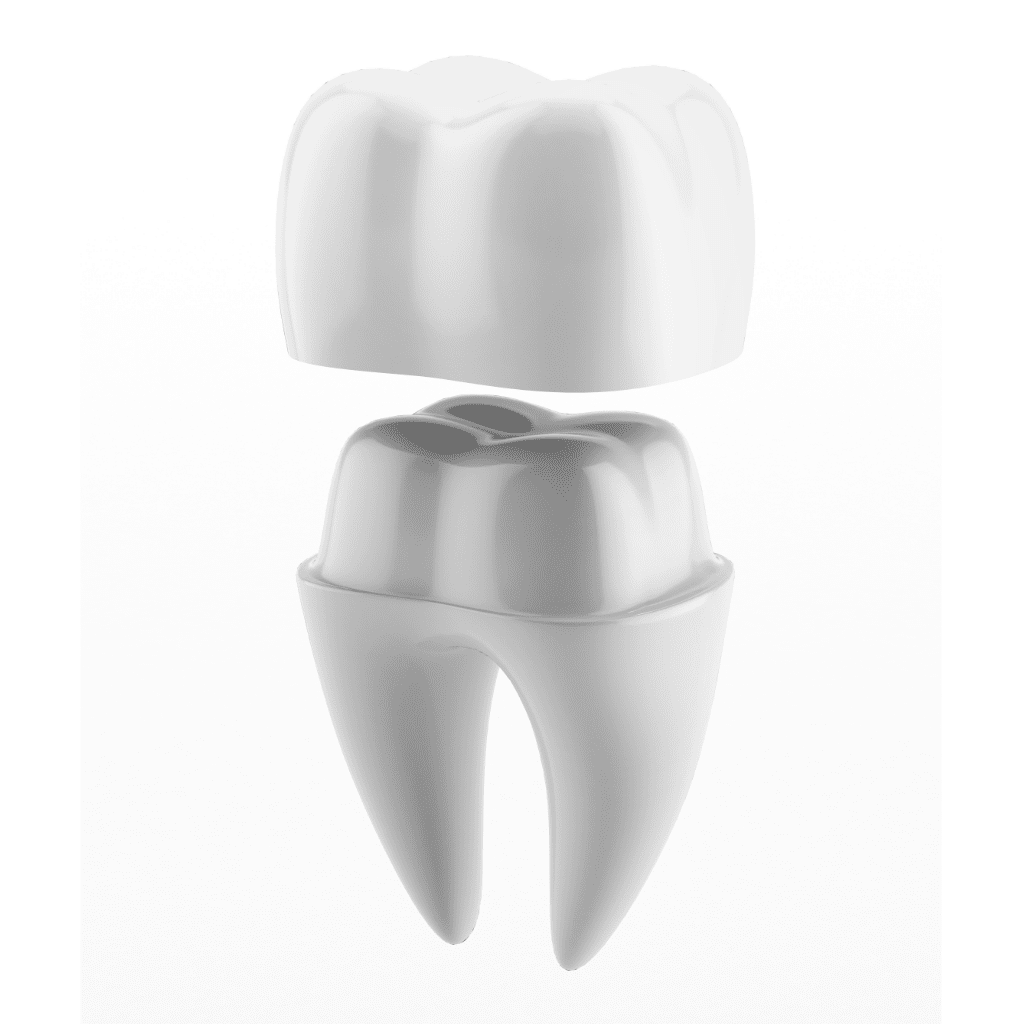Everything You Need To Know About Dental Crowns
Many patients are informed a crown may help to strengthen a tooth but may be unsure of what a dental crown is.

Dental fillings are made of resins and are used to seal a tooth that was destroyed by a dental cavity. If a dental filling is large, or a tooth has a fracture, a dental crown is used to seal and strengthen the tooth. A dental crown can be an important tool to protect your tooth so it can chew with confidence. Dental crowns are also used to complete a dental implant or finalize a root canal therapy.
What Is A Dental Crown?
A dental crown is a tooth-shaped “cap” that is placed over a tooth. They are used in many situations to cover the tooth which helps to restore its shape and size, its strength and to improve its appearance. A crown restores the tooth and protects it from further damage.
Crowns can also be used to cover a discoloured or misshapen tooth. A tooth that has been fixed with a crown looks and works very much like a natural tooth. This makes them a great option to consider when planning cosmetic dentistry work. Your dentist can help you determine if a dental crown is the right option for you in these circumstances.
The dental crown is fabricated by a laboratory based on an impression of the tooth that your dentist will send them. The crowns, when cemented into place, fully encase the entire visible portion of a tooth that lies at and above the gum line.
Why Would I Need a Dental Crown?
A dental crown may be needed in the following situations:
- Restore a broken or cracked tooth
- To provide a tooth structure to a dental implant
- Replace a failing large filling with a stronger material that covers the entire biting surface
- Complete your root canal therapy
What Type of Dental Crowns Are Available?
Permanent crowns can be made from various materials. The most common options, and those we use at Ambiance Dental, are ceramic and gold dental crowns. Typically ceramic will be used on any teeth that show in your smile and gold will be used for teeth that are not visible such as molars.
Metals used in crowns include alloys that have a high content of gold or platinum or they can also be made of base-metal alloys. Metal crowns can withstand biting and chewing forces well and wear similarly to your natural tooth structure. A metal crown can be very strong with minimal tooth structure removed. The metallic colour is the main drawback to a gold crown which makes them a good choice for out-of-sight molars.
Ceramic dental crowns provide a better natural colour match than any other type of crown material. Porcelain doesn’t withstand shear stress as well though, so patients who grind or clench would be at a high risk of chipping porcelain and extra precautions may be required to protect them. There are many options for ceramic crowns to idealize esthetic and strength areas of concern. Ceramic crowns can be used on front and back teeth because they blend in perfectly.
Temporary Versus Permanent
Temporary crowns are made in our office, whereas most permanent crowns are typically made in a dental laboratory. Typically, temporary crowns are made of an acrylic-based material or stainless steel and can be used as a temporary restoration until a permanent crown is constructed by a lab.
How Is A Dental Crown Completed?
Your dentist will start by giving you a local anesthetic. Then, to make room for the crown, they will file down the tooth that needs to be restored.
An impression of the filed-down tooth and your nearby teeth is then taken. This impression is used for the laboratory to custom make your final crown. The crown is built using restorative material based on the impression. The final crown will be a perfect fit for the tooth you are restoring and those it comes into contact with.
While you wait for your final crown to be ready, your dentist will place a temporary crown over the tooth that needs to be restored. The temporary crown is made from an impression of your tooth before it was filed down and it is used to protect your tooth until the final crown is ready. A temporary crown may not have the same shape and colour as the final crown.
On your next visit, your dentist will take off the temporary crown and put on the final one. Your dentist will check to make sure the crown is the right fit, shape, colour and aligns with your bite. If everything fits properly, your dentist will cement the crown into place after cleaning the tooth.
How Much Do Dental Crowns Cost?
The costs of dental crowns can vary depending on where you live and the type of crown material you are using. In general, dental crowns can range in cost from $800 to $1,500 or more per crown. The cost of crowns is not usually fully covered by insurance. To be certain, you should check with your dental insurance company.
While this is a lot of information to sift through, your Ambiance dentist will walk you through the specific reason you need a crown, what your options are, the material they recommend and why, and the procedure that will happen. Our team will also provide a price quote and can help you navigate what may be covered by your insurance and any payment terms required.
Give us a call today if you have concerns that may need a dental crown or if there are any questions at all that we can answer.
